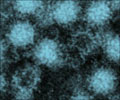Vaccine trials conducted on Rotateq and Rotarix in more than 1, 30, 000 children offer promise in the prevention of childhood diarrhea.
Vaccine trials conducted on Rotateq and Rotarix in more than 1, 30, 000 children offer promise in the prevention of childhood diarrhea. The vaccines have been found to be 98% and 85% effective respectively. The dreadful disease accounts for 1/3rd of all hospital infections worldwide.
A vaccine had been developed for the disease during the 1990’s. This however, was withdrawn from the market owing to the possibility of a potential life-threatening condition, referred to as intussusception. This condition is characterized by intestinal folding, followed by intestinal blockage.Almost all children suffer from rotavirus infection, at age 2 or 3. The most signs of infection include vomiting, fever, pain in the abdomen, watery diarrhea that can be fatal. Asymptomatic presentation can also be seen in a small proportion of the cases.
The incidence of rotavirus infection is estimated to be 1 in 38 in the UK. The incidence is even higher in the developing and underdeveloped countries. This can be attributed to poor sanitation and the lack of proper health care access.
Merck, a leading pharmaceutical company, has developed the vaccine, Rotateq. The vaccine can effectively manage five major strains of the rotavirus, believed to be associated with 90% of the infections. The study participants were divided into two groups; one group received the vaccine while the other group received a placebo. The study participants were closely monitored for the presence of adverse effects. A comparative revealed that there was no increased risk of side effects in the vaccine group.
Rotarix, an oral vaccine has been developed by GlaxoSmithKline and clinical trials were conducted to analyze the safety and efficacy of the formulation in over 63,000 infants. The study further documented a significant reduction in the hospital admissions related to rotavirus infection. No difference was seen in the complication rate as well.
"As vaccines become licensed and used in the US and Europe, we should expect to see a substantial reduction in winter hospitalizations, visits to doctors and clinics and parents' workdays lost to childhood diarrhea", said Dr Roger Glass and Dr Umesh Parashar, from the US Centers for Disease Control.
Advertisement











